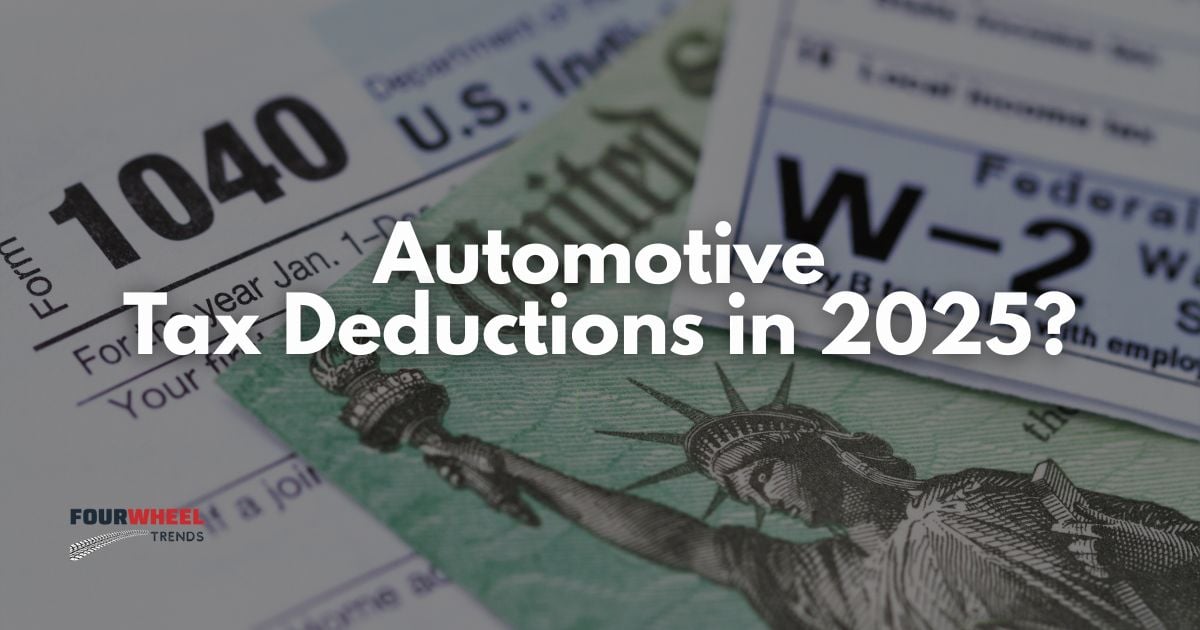Is Buying a New Car Tax Deductible in 2025?
If you’re eyeing a new car in 2025 and wondering if Uncle Sam will give you a break for it, you’re not alone. Every tax season, clients ask me whether buying a new vehicle can be a strategic financial move—especially when business use is involved. The short answer: it depends.
Let’s break it down.

First, the Basics: Personal vs. Business Use
The IRS doesn’t give tax breaks for personal vehicle purchases, no matter how shiny the car or how brutal your commute. That new electric SUV? Great for errands, but it won’t trim your tax bill unless you’re using it for work (and not just driving to and from the office).
However, if you’re self-employed, own a business, or use your car for work-related tasks, some of the costs associated with that vehicle might be deductible.
The Business Use Deduction
If the vehicle is used strictly for business, you’ve got two main ways to deduct costs:
- Standard Mileage Rate:
For 2025, the IRS mileage rate is expected to be updated again (in 2024 it was 65.5 cents per mile). If you drive a personal car for business, this rate helps you calculate your deduction. You’ll need to track every work-related mile. - Actual Expense Method:
Instead of using mileage, you can deduct a percentage of expenses like gas, maintenance, insurance, registration, and depreciation. But the catch is that you can only deduct the percentage of use tied to business. So, if you use your car 60% for business, you can deduct 60% of the costs.
One heads-up: You can’t switch back and forth between these methods every year. Once you choose actual expenses for a vehicle, you’re mostly locked in for that car.
Section 179 and Bonus Depreciation
Now here’s where things get interesting.
Under Section 179, business owners may be able to deduct the full or partial purchase price of a qualifying vehicle in the year it’s placed in service.
For 2025, the limits haven’t changed dramatically, but the IRS still puts caps on luxury vehicles. Large SUVs (over 6,000 pounds) can qualify for more generous deductions, but passenger vehicles are subject to tighter limits.
Bonus depreciation is another strategy that allows you to write off a significant portion of the vehicle’s cost. This provision has been gradually phasing down from 100%—in 2025, it’s set at 60%, meaning you can deduct 60% of the vehicle’s cost upfront, assuming it qualifies.
What About Electric Vehicles (EVs)?
The Inflation Reduction Act of 2022 revamped the EV tax credit structure. In 2025, you can still potentially qualify for a Clean Vehicle Credit of up to $7,500, depending on the make, model, and where the car and battery components were manufactured.
However, this is a credit, not a deduction—and only applies if the car meets strict requirements. Also, income limits apply, so high earners may not qualify.
A Few Caveats
Before you rush to the dealership:
- The vehicle must be placed in service in the tax year you’re claiming it. That means if you’re hoping for a 2025 deduction, the car needs to be on the road and in use before December 31, 2025.
- Proper documentation is essential. Track mileage, keep receipts, and maintain records of business use. The IRS doesn’t take your word for it.
The Bottom Line
Buying a car in 2025 can offer tax benefits—if it’s used for business purposes and you structure things correctly. But for personal-use vehicles? Sorry, no deductions there.
And here’s an important note: While I am a licensed financial advisor, I am not your financial advisor. This article is for informational purposes only. I am not offering tax or financial advice, and the rules change frequently. You should always consult your tax professional or financial advisor to discuss your unique situation before making any decisions.
The tax code is a moving target, and what’s true today might change tomorrow. But with a little planning and the right guidance, your next car purchase could do more than just get you from A to B—it might also help drive your business forward.
Related Reading: Does Buying a Car Help Your Credit? Here’s What You Need to Know
